Congratulations on your new home! As a proud homeowner, you're likely uncovering the myriad of benefits that come with your investment, including potential tax deductions that can lighten your financial load. Understanding these deductions can be a game-changer, helping you maximize your savings and fully embrace your new lifestyle. Dive into our article to discover essential tips and information that can help you make the most of your new homeowner status!

Property Tax Deduction
Property tax deductions provide significant financial relief for new homeowners in the United States, particularly regarding real estate taxes that are real property tax-deductible. Homeowners can typically deduct property taxes paid on their primary residence and any additional properties (such as rental homes) during the tax year. The deduction applies to the amount paid in property taxes to local governments and municipalities, commonly determined by assessed property value multiplied by the local tax rate. For the 2022 tax year, the IRS allows homeowners to deduct property taxes up to a maximum of $10,000 for single filers and married couples filing jointly, while married individuals filing separately have a limit of $5,000. It is crucial for homeowners to maintain records of their property tax payments and receipts as documentation when filing tax returns to substantiate their deductions. State-specific regulations may apply, so consulting a tax professional is advisable for maximizing potential tax savings.
Mortgage Interest Deduction
The Mortgage Interest Deduction provides significant tax relief for new homeowners. Eligible homeowners can deduct mortgage interest from their taxable income, potentially saving thousands of dollars annually. For instance, the IRS allows the deduction on interest paid on mortgages for homes valued up to $1 million for loans taken out after December 15, 2017; loans taken out prior to this date may have different limits. Taxpayers must itemize their deductions on Schedule A of Form 1040 to benefit from this deduction, making it crucial for homeowners to maintain accurate records. Factors such as local property taxes, private mortgage insurance, and loan servicing fees also contribute to the overall tax savings, highlighting the importance of thorough financial planning in homeownership.
Mortgage Insurance Premium Deduction
Mortgage insurance premiums offer financial support to new homeowners, allowing them to deduct a portion of their costs on federal income taxes. Homeowners with eligible mortgage insurance can report these premiums on Schedule A of IRS Form 1040 during tax-filing season. This deduction can reduce taxable income by a significant amount, often resulting in hundreds of dollars in savings. The deduction applies to mortgage insurance policies issued after 2006, and it is phased out for higher-income taxpayers, specifically those with adjusted gross incomes exceeding $100,000. Homeowners, especially in regions with high housing costs like California or New York, benefit greatly from this financial incentive, aiding them in managing their mortgage expenses.
Home Office Deduction
The Home Office Deduction allows qualifying homeowners to reduce taxable income, providing significant financial relief. To qualify, the dedicated workspace must meet IRS criteria, such as being used exclusively for business purposes and being the principal place of business, which typically requires at least 15 hours of work per week. Homeowners can calculate deductions based on square footage, with the simplified method allowing $5 per square foot up to 300 square feet, resulting in a maximum deduction of $1,500. Eligible expenses include utility bills, internet services, and necessary repairs, which can also contribute to the overall deduction amount. Documentation is crucial, ensuring all claims can withstand IRS scrutiny and providing a detailed account of expenses associated with the home office.
Energy Efficiency Tax Credits
Energy efficiency tax credits provide substantial financial incentives for new homeowners investing in renewable energy solutions. These credits, part of the federal tax code under the Residential Energy Efficient Property Credit, can cover a significant percentage, up to 30%, of the cost associated with solar energy systems, geothermal heat pumps, and small wind turbines installed on residential properties. Homeowners in states like California and Texas can further benefit from state-level tax deductions that complement federal incentives. To qualify for these credits, homeowners must ensure that the installation meets specific efficiency standards established by the Energy Star program or the Department of Energy, potentially saving thousands of dollars on federal income tax filings. Adopting energy-efficient appliances, such as ENERGY STAR(r) rated products, can also yield additional savings and lower utility bills.
Letter Template For New Homeowner Tax Deduction Samples
Letter template of inquiry regarding new homeowner tax deduction process

Letter template of documentation submission for new homeowner tax deduction
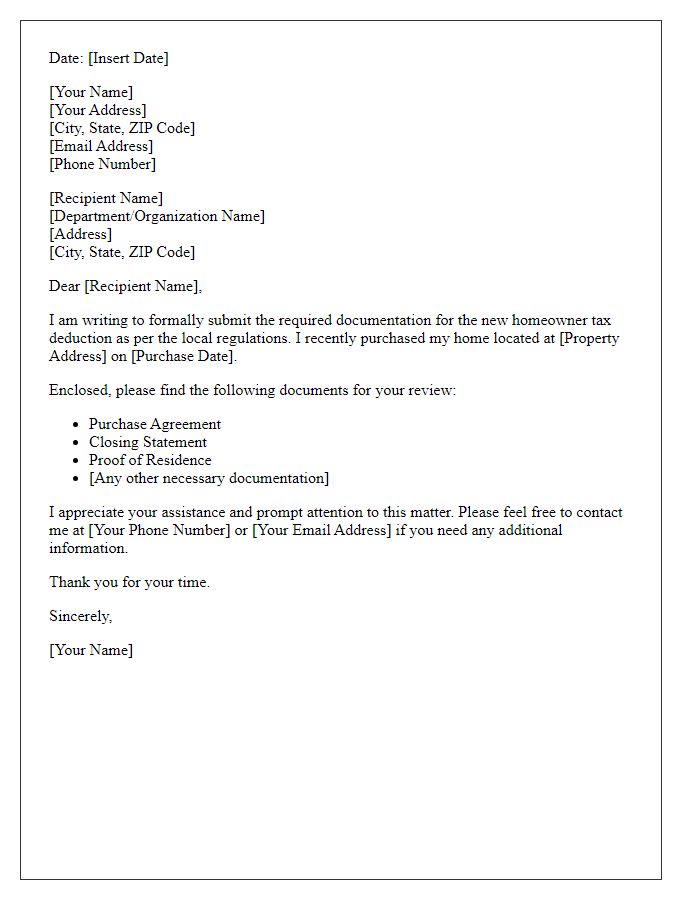
Letter template of notification about new homeowner tax deduction changes
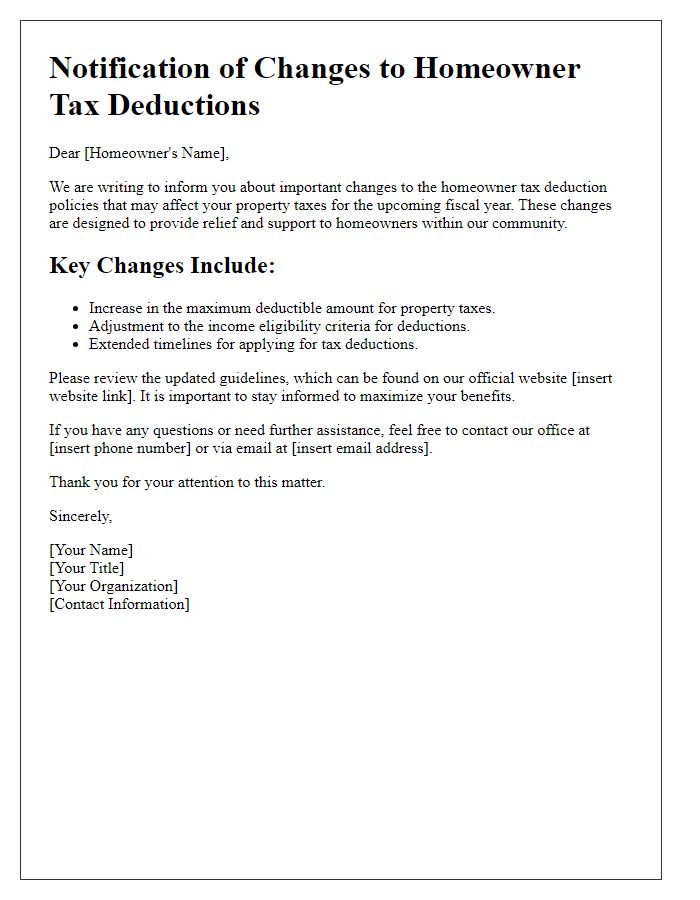
Letter template of acknowledgment for new homeowner tax deduction approval
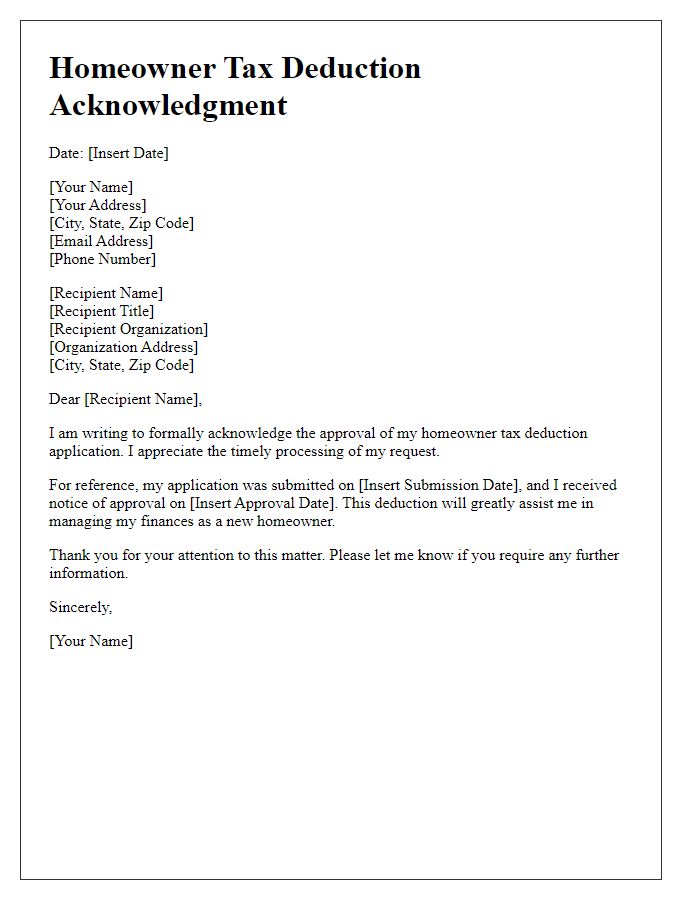

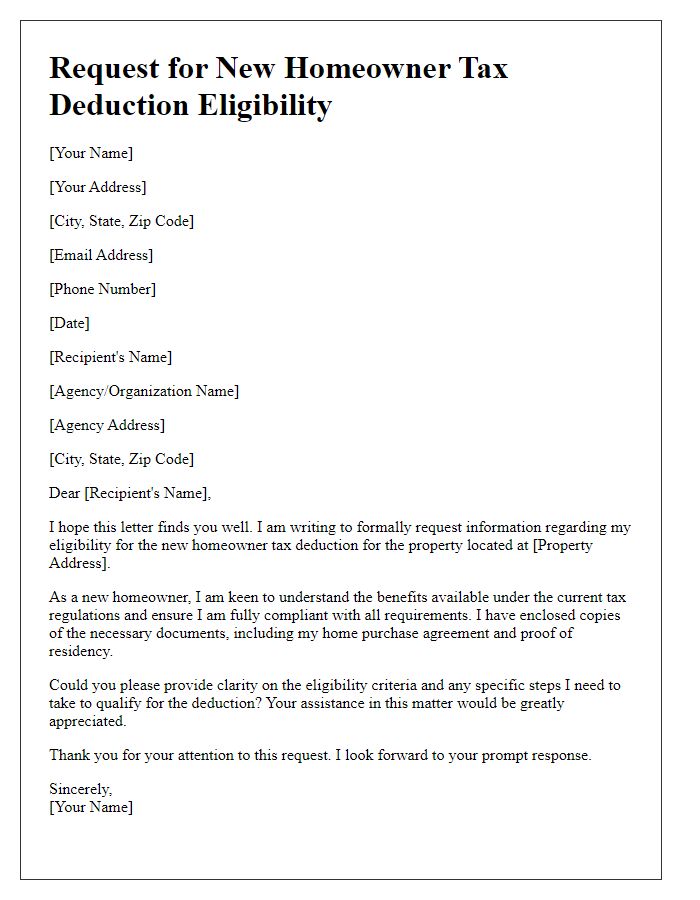

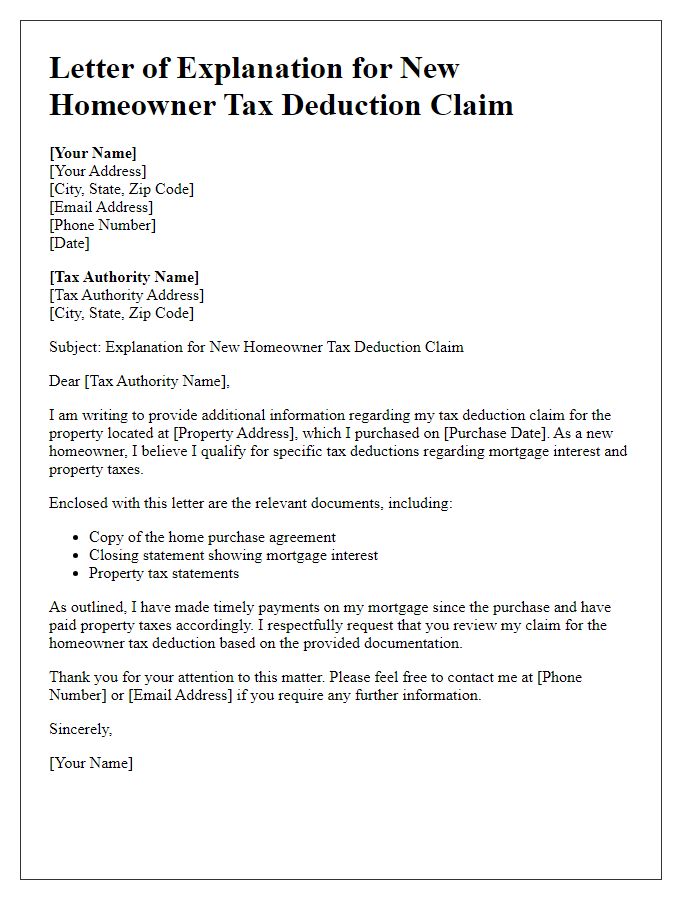


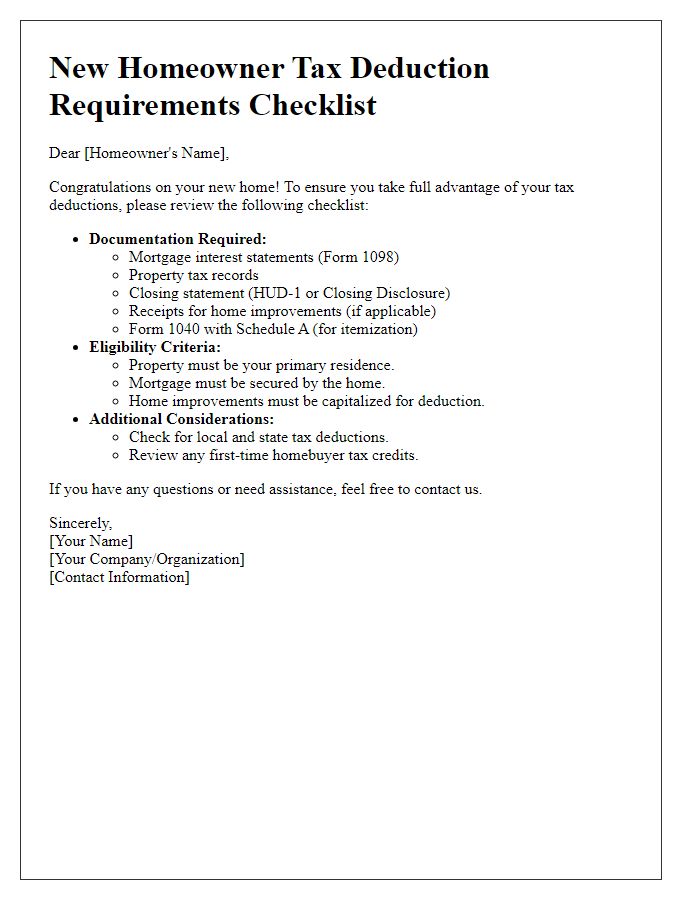


Comments